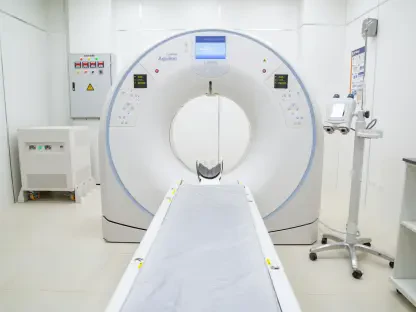North Carolina’s Senate is preparing to vote on a crucial bill that aims to increase transparency in healthcare pricing and reduce overall healthcare costs in the state. Scheduled for this week, the “Lower Healthcare Costs” bill, sponsored by Senator Amy Galey, requires hospitals to file quarterly reports detailing the costs of common procedures. The legislation is designed to allow patients to compare prices and choose more affordable healthcare options. Moreover, it mandates that healthcare facilities provide good-faith estimates of charges and notify patients about out-of-network services, which often come with higher costs.
Mandating Cost Transparency
The introduction of this bill highlights the urgent need to address high healthcare costs in North Carolina, where expenses rank among the highest in the nation. By requiring hospitals to file quarterly reports, the bill aims to shed light on the cost drivers within the healthcare system and help control expenses. With the provision of detailed and transparent cost information, patients can make more informed decisions about their healthcare options, potentially driving competition and lowering prices.
Senator Amy Galey, supported by Senate leadership, emphasizes that the bill’s primary goal is to empower patients with clear and actionable information. This approach aligns with a national trend toward greater transparency in healthcare, spurred by executive orders from former administrations aiming to empower patients. The bill also addresses several regulatory barriers, such as reducing obstacles to opening new rehabilitation facilities and preventing health service bills from going to collections without detailed billing information.
Impact on Healthcare Providers and Patients
The bill’s effect on healthcare providers and patients is multifaceted. For healthcare facilities, adhering to the new requirements involves systematic changes in how billing and cost information is documented and reported. These facilities will also need to provide good-faith estimates and notifications about out-of-network services, which could create additional administrative responsibilities. On the other hand, patients will benefit from having better access to clear and detailed cost information, allowing them to make more informed choices about where to seek care.
The N.C. Healthcare Association, representing the state’s hospitals, is actively discussing its stance on the bill with lawmakers. While the association has not taken a definitive position, spokeswoman Stephanie Strickland expressed an openness to collaborating with legislators to find effective solutions for reducing healthcare costs. This collaborative approach is essential, as the bill’s success hinges on the cooperation and adaptability of healthcare providers and insurance companies alike.
Legislative Strategies and Potential Outcomes
The Senate’s bill is one of several initiatives introduced this year aimed at reducing healthcare costs in North Carolina. Historical differences between the Senate and House approaches are evident, with the Senate typically receiving support from the insurance industry, while the House gains backing from hospitals and doctors. This dynamic suggests that comprehensive reform will require careful negotiation and collaboration between both chambers to ensure that the final legislative solution is effective and sustainable.
If passed, this bill could set a precedent for other states grappling with similar issues. By demanding transparency and providing patients with actionable information, North Carolina could potentially revolutionize healthcare consumer behavior, leading to decreased overall costs. The bill’s provisions, such as banning facility fees outside hospital campuses and restricting insurance companies’ use of prior authorization, further demonstrate a commitment to reducing unnecessary expenses and improving patient care.
Future Considerations and Next Steps
The North Carolina Senate is on the verge of voting on a pivotal bill aimed at boosting transparency in healthcare pricing and curbing overall costs in the state. Set for this week, the “Lower Healthcare Costs” bill, sponsored by Senator Amy Galey, compels hospitals to submit quarterly reports that detail the expenses of common medical procedures. The purpose of this legislation is to enable patients to compare prices, thereby selecting more economical healthcare options. Additionally, the bill mandates that healthcare facilities provide patients with good-faith estimates for charges and inform them about out-of-network services, which usually come at higher costs. This measure ensures that patients are better informed about potential expenses and can make more cost-effective decisions regarding their healthcare. By ensuring greater transparency and upfront communication, this bill aims to make substantial strides in lowering healthcare costs and improving patient awareness in North Carolina.









